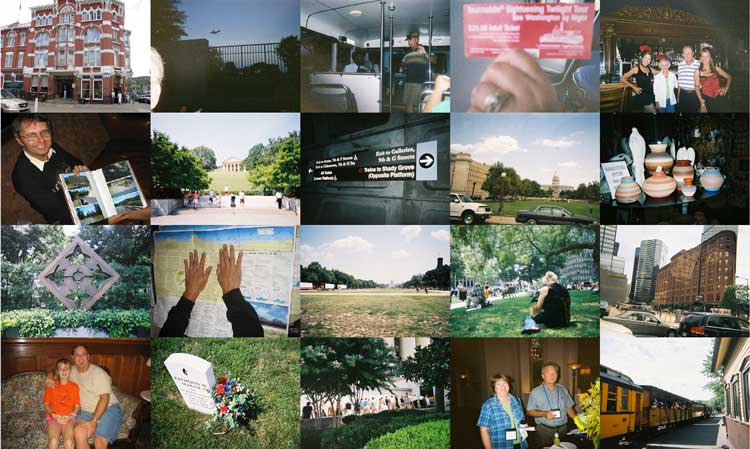People-centered design, with a strong foundation in research and storytelling, offers a way to create personalized and customized interactions in a cost-effective and iterative way.
People-centered design is a rapid and iterative interaction design methodology focused on understanding and engaging individuals in ways that are useful, usable, and desirable.
The essence of this approach, from my perspective, is as follows:
- Understand your mission, your vision, and your stakeholders
- Conduct some research, preferably in context
- Interpret your research findings through models and narrative
- Explore design options through low fidelity approaches
- Get the big questions answered before you niggle the details
More and more, the job of the designer (and the design researcher) is to provide a platform on which more can be added later. This is especially true in interaction and service design, but there is more and more overlap between products, services, and platforms.
People-centered design approaches are cost-effective and scalable; applicable to both large and small projects, they can be used to generate ideas, to facilitate communications within a project team and with external stakeholders, and to refine and improve interactions on existing applications.
How is it done?
“Ever tried. Ever failed. No matter. Try Again. Fail again. Fail better.â€
– Samuel Beckett
Each engagement starts by understanding your organization’s capabilities, challenges, and goals; based on this understanding, we’ll work together to develop a research and design program focused on providing real, cost-effective value. Every project is unique and customized, with a commitment to being practical, creative, and innovative.
While many of the solutions are high-tech and high touch, the approach to creative exploration is decidedly low-tech. I use people-centered design methods, including team facilitation, ethnographic research, experience models, personas, scenarios, and prototypes. These techniques allow creative options to be explored quickly and iteratively, and they front load the process so that there is less time and money wasted in the development process.
At its best, design is a process of problem solving; while there are important moments of inspiration, superior results come from a deep understanding of the business, the audience, and the connections between the two. While especially important in interactive media such as the Internet, experience strategy can offer important and transformational insights into how to craft superior solutions in realms as diverse as product design, architecture, and advertising.
I work with a combination of approaches including team facilitation, personas, scenarios, prototypes, and experience models. These approaches help to define a shared vision for the project team, assuring that solutions are appropriate and achievable. With a focus on rapid iteration, this approach is pretty effective; among other benefits, it allows potential issues to be discovered earlier in the process when change is less costly to implement.
In the connected world, you have the opportunity to build or destroy relationships with every interaction. And, you have the opportunity to create ambassadors and co-creators from your audience. I can help you to craft a design strategy that will work for your organization.
Who I work with
I work with a variety of corporations, non-profits, and community organizations; I have extensive expertise in the travel, education, and financial services industries.
Some of the organizations I’ve worked with include:
AIGA (American Institute of Graphic Arts)
Alamo Rent A Car
AAA (American Automobile Association)
American Friends Service Committee
Aspen Institute
Aspen Ski Area
Boscolo Hotels (Italy)
Budget Rent A Car
Cable Center
Google Europe
Heifer International
Jack Morton
Janus Funds
Lab at Belmar
Limited Express
Knoll
National Trust for Historic Preservation
Nature Conservancy
PhoCusWright
Qwest/US West
Rocky Mountain College of Art and Design
Universal Studios Florida
University of Denver
Contact Information
Hugh Graham
2111 West 31st Avenue
Denver, CO 80211
303.458.6077 phone
hugh@hughgrahamcreative.com
